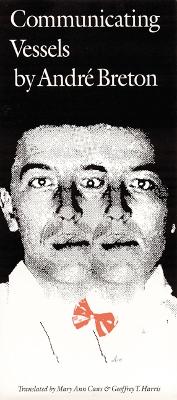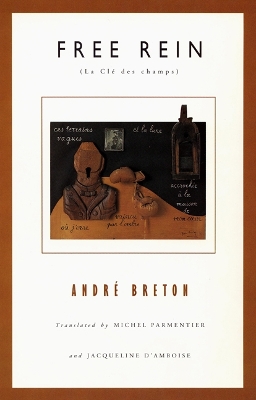French Modernist Library
5 total works
He is also the translator of Jean Echenoz's "Double Jeopardy" (Nebraska 1994) and "Cherokee" (Nebraska 1994) and of Andre Breton's "Conversations: The Autobiography of Surrealism". Mary Ann Caws is Distinguished Professor of French at Hunter College and at the City University of New York. Her most recent work is "Robert Motherwell: What Art Holds". She is the translator of Andre Breton's "Mad Love" (Nebraska 1987) and "Communicating Vessels" (Nebraska 1990).
In Communicating Vessels Breton lays out the problems of everyday experience and of intellect. His involvement with political thought and action led him to write about the relations between nations and individuals in a mode that moves from the quotidian to the lyrical. His dreams triggered a curious correspondence with Freud, available only in this book. As Caws writes, "The whole history of surrealism is here, in these pages."
Mark Polizzotti is the editorial director of David R. Godine, Inc. He is the translator of numerous works and the author of "Revolution of the Mind: The Life of Andre Breton". Mary Ann Caws is Distinguished Professor of English, French, and Comparative Literature at the Graduate School of the City University of New York and the author or editor of some forty-one books, most recently "The Surrealist Look: An Erotics of Encounter".
Having broken decisively with Marxism in the mid-1930s, Breton repeatedly addresses the horrors of the Stalinist regime (which denounced him during the Moscow trials of 1936). He argues for the autonomy of art and poetry and condemns the subservience to "revolutionary" aims exemplified by socialist realism. Other articles reflect on aesthetic issues, cinema, music, and education and provide detailed meditations on the literary, artistic, and philosophical topics for which he is best known. Free Rein will prove indispensable for students of Breton, surrealism, and modern French and European culture.
""There has never been any forbidden fruit. Only temptation is divine,"" writes André Breton, leader of the surrealists in Paris in the 1920s and '30s. Mad Love is dedicated to defying ""the widespread opinion that love wears out, like the diamond, in its own dust."" Celebrating breton's own love and lover, the book unveils the marvelous in everyday encounters and the hidden depths of ordinary things.




